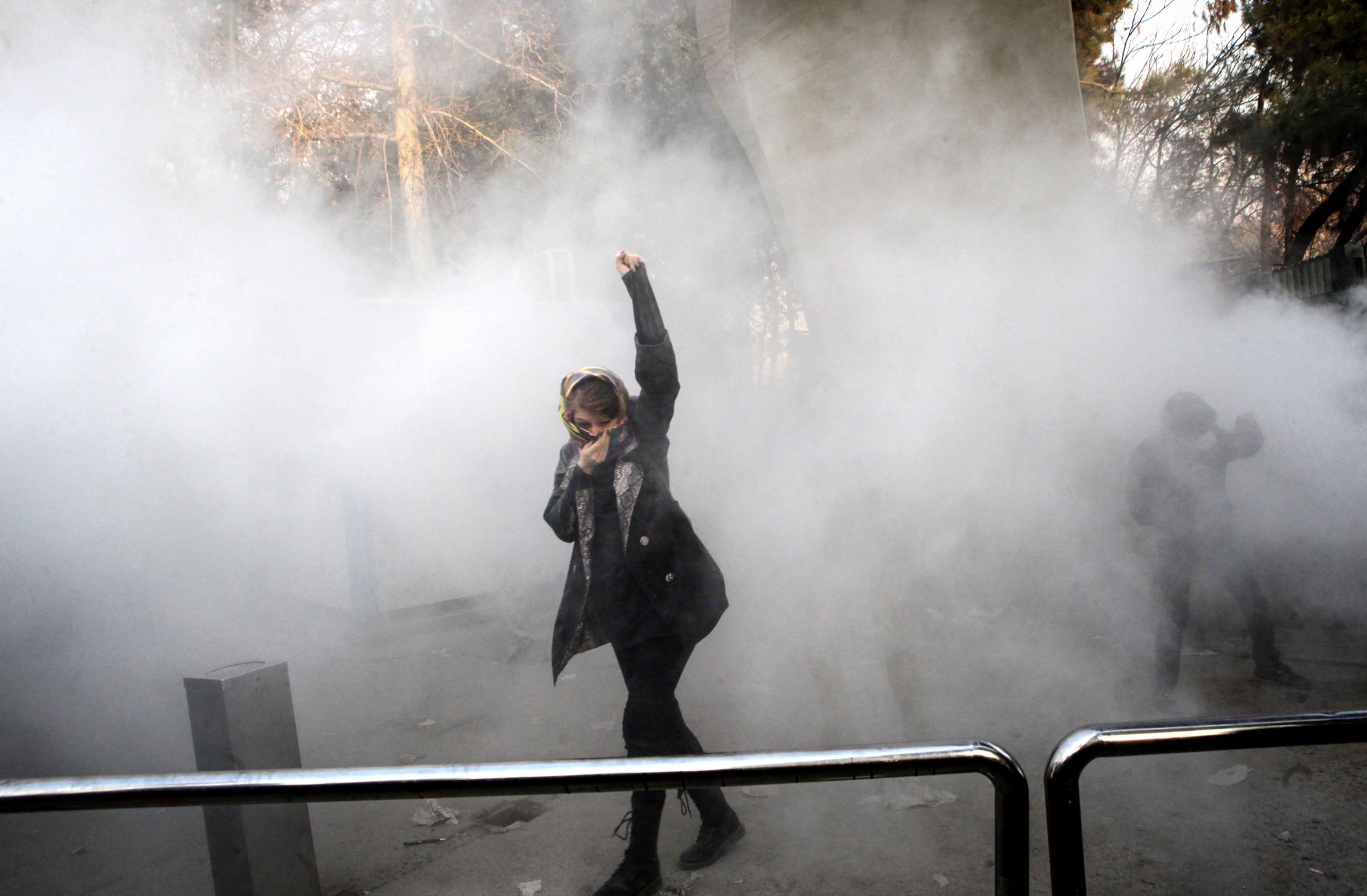This is no Iranian Spring – but there are seeds of change
The wheel is not about to turn full circle but the economic pressures and divisions in Iranian society will grow, and there are only weak democratic structures to resolve them

The world, as Donald Trump and Boris Johnson say, is watching Iran. True enough, and with some trepidation.
For if the world was watching the true beginnings of a liberal revolution in Iran, then there would be some hope that the new year will bring freedom to Iran and an end to Iranian interference in the affairs of its neighbours.
There would, in other words, be some tiny prospect that the slow palace revolution taking place across the Red Sea in Riyadh and the erosion of theocratic rule in Tehran might mean end to their pitiless proxy wars, fought with the blood of other peoples in Yemen, Iraq, Syria and elsewhere, and their sponsorship of rival terror groups. The arrival of moderation and progressive movements in these two warring regional superpowers would be a great source of celebration in 2018. It would be a nice surprise.
The chances, however, are that the protests in Iran will lead only to a perhaps prolonged period of unrest, with pro-regime counter-protests and what the authorities call their “iron fist” being slammed down as hard as ever on dissent. These riots have resulted in fatalities, and more may well follow. The determination, if not desperation, of the protesters is undoubted. No Iranian lightly takes to the streets to chant “death to the Ayatollah”. It is a reminder of what has long been true: that the young and better-educated Iranians yearn for their country to rejoin the world community and for them to enjoy the liberty of watching, reading and voting in genuinely democratic elections as they wish.
Yet the protesters do not yet clearly represent a majority of Iranians, and the state has a formidable array of weapons at its disposal with which to survive this challenge to its power, from propaganda and the mosques to the military. The state, in this case, means that part of it run by the clerics and answerable to an autocratic “supreme leader”, Ayatollah Khamenei, rather than the civilian government that somehow tries to function alongside it.
The “revolutionary guard”, the vanguard of defence of the regime, has, ironically, its origins in the revolution of 1979 which ousted a previous repressive government, that of the Shah, replacing it with the present Islamic Republic, apparently now so unpopular in parts of Iranian society. The revolutionary guard is now a formidable arm of the conservative old establishment and as ruthless and self-interested as it ever was.
These events leave the elected government, led by the relatively enlightened Hassan Rouhani, in a difficult position. So far ministers seem to be siding with the imams.
This, then, is no Iranian Spring, but it does have similar origins to the previous uprisings in the Maghreb and the Arab world in recent years. Overwhelmingly youthful populations find themselves without jobs or prospects in rigged, over-regulated sclerotic economies run for the benefit of an elite who appropriate for themselves sometimes abundant natural resources or oil wealth. These young populations are fed up of inflation and petty corruption. So they protest and cry out for change. Social media and mobile phones circumvent official channels of propaganda and help organise their demonstrations and political messages. The internet helps develop a new consciousness and awareness of the prosperity and freedom of the West. That only adds to the resentment – Iran is not as closed as say North Korea – and impatience with an out of touch gerontocracy relying on medieval concepts of governance.
Iran, more than any other nation in the region, has the potential to join the ranks of the fast-growing emerging market economies elsewhere in the world, breaking out of ignorance and poverty and liberating economic opportunity for all. That is a powerful motivation for patriotic young Iranians.
Almost exactly four decades ago Iran saw its last revolution, street protests led by students forcing the rapid collapse of the Shah’s government even with the military and secret police on his side, and when many thought it unthinkable. The wheel is not about to turn full circle: history probably will not repeat itself now, but the present system of Iranian politics, part civilian, part clerical, and hardly free, is incapable of meeting the aspirations of its citizens. The economic pressures and divisions in Iranian society will grow, and there are only weak democratic structures to resolve them.
One of the few arguments that the ayatollahs may be able to employ to popular effect, as they have in previous episodes, is that these protests are being orchestrated by spies, agents of the Great and Little Satan, as they term America and Britain (the Iranians having sound historical reasons to single out the UK for suspicion, grossly overestimating modern British power).
Absurd as that may seem, Mr Trump and Mr Johnson would be wise to stay out of things, and watch and wait rather than tweet and blunder. Mr Trump need not labour how tough he is on Iran’s nuclear weapons programme, compared with President Obama – we all know that already. Mr Johnson, in particular, has experience of making a bad situation worse in Iranian affairs. The world is watching Mr Trump and Mr Johnson too.
Join our commenting forum
Join thought-provoking conversations, follow other Independent readers and see their replies
Comments
Bookmark popover
Removed from bookmarks